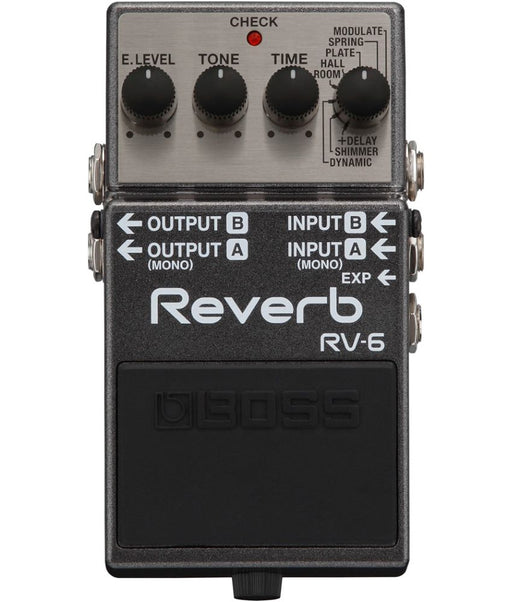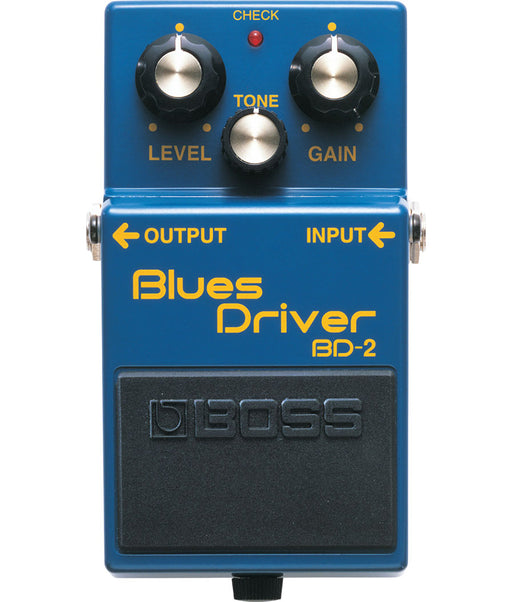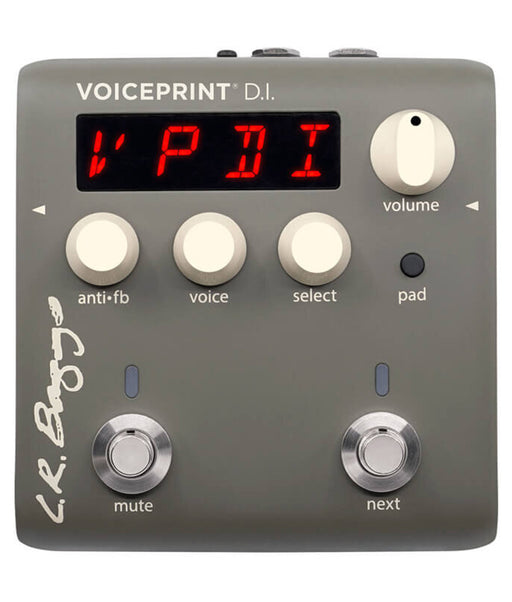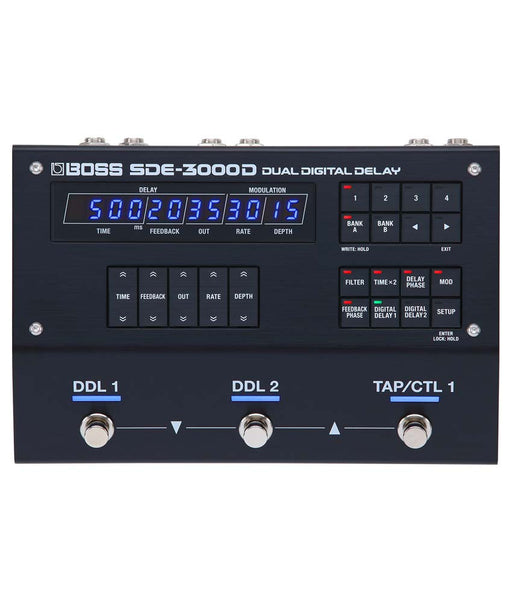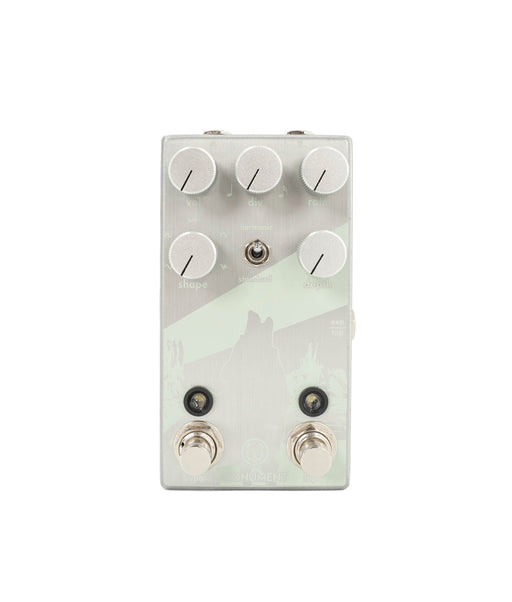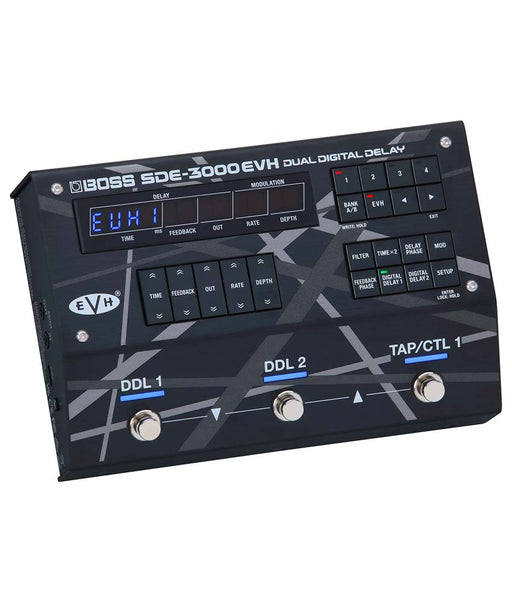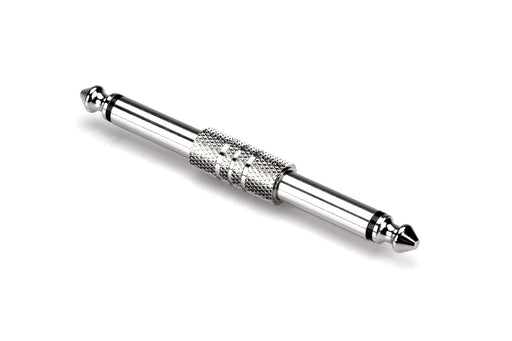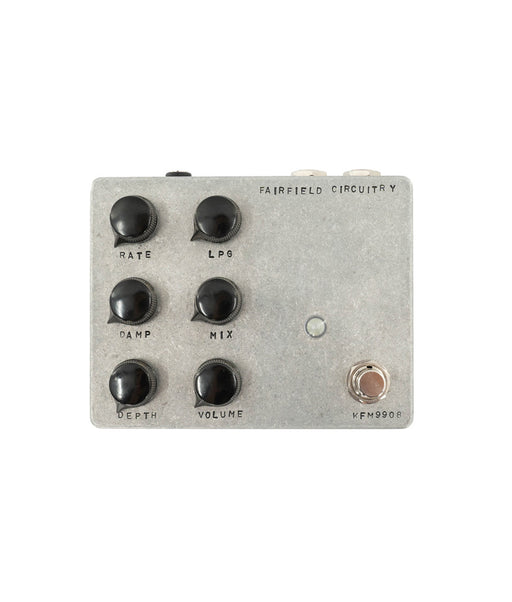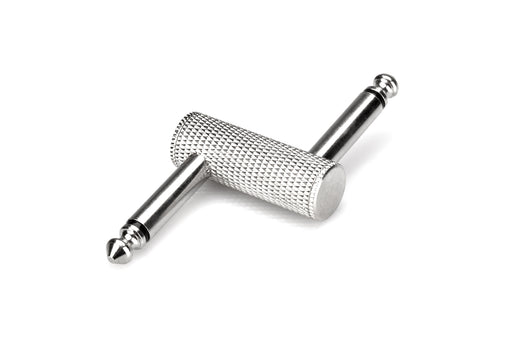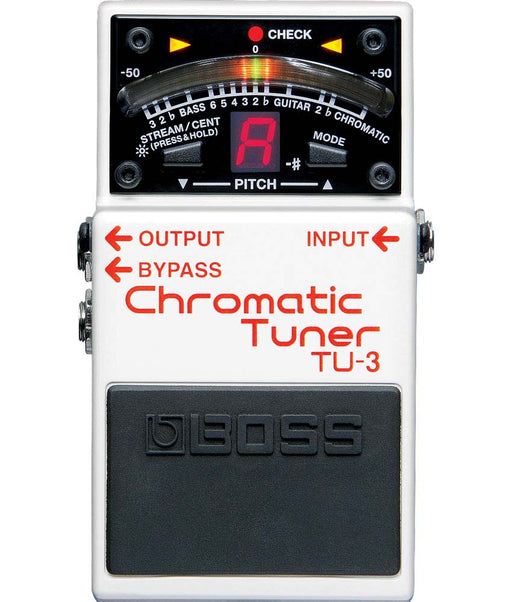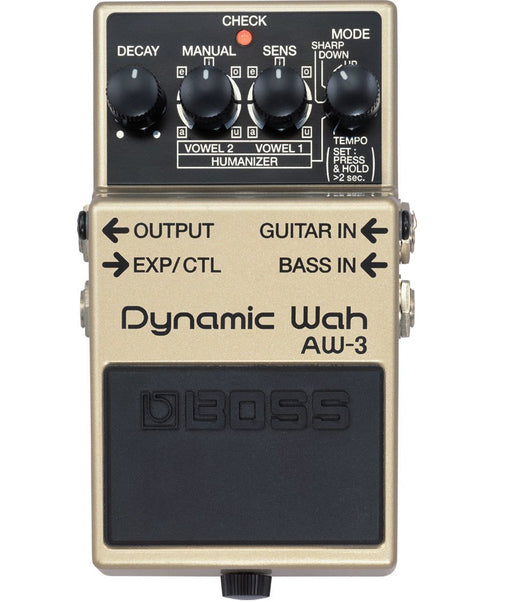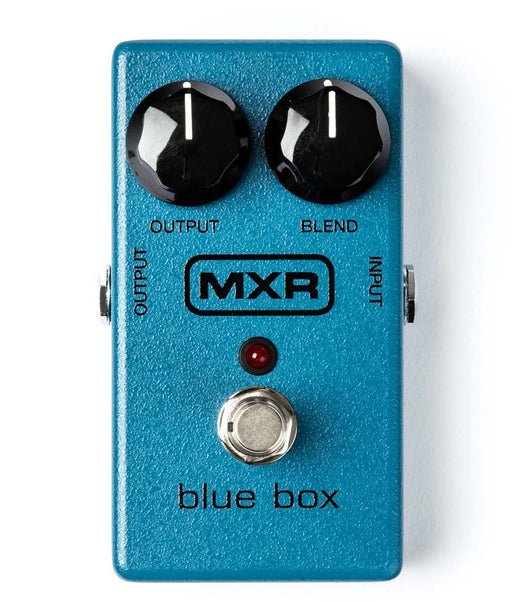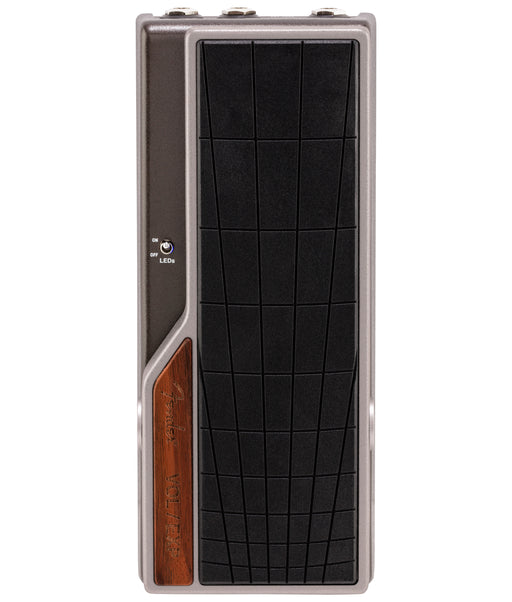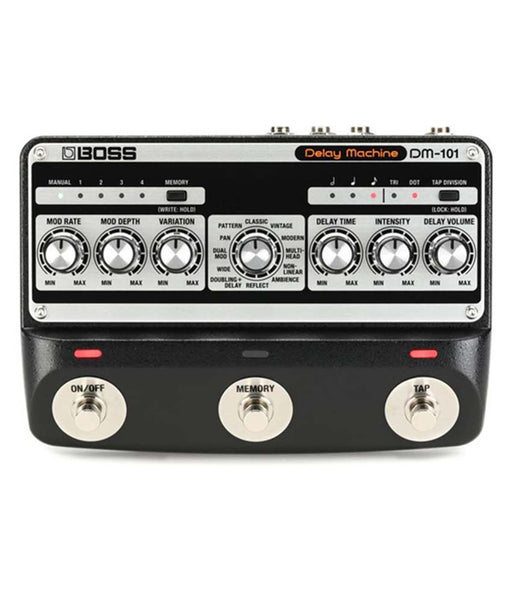Search results for “guitar pedals”
Filters
- Acoustic Guitars (3)
- Acoustic-Electric (8)
- Adapters and Breakout Cables (1)
- Digital Pianos (3)
- Electric Guitars (1)
- Guitar Amplifiers (11)
- Guitar Pedal (23)
- Guitar Pedals & Effects (178)
- Guitar Strings (1)
- Instrument Cable (6)
- Keyboards (3)
- Pedalboard Patch Cables (5)
- Portable / Arranger / Synth (4)
- Pro Audio (1)
- Tuners And Metronomes (3)
- Blaxx (1)
- Boss (82)
- D'Addario (2)
- Dunlop (8)
- EarthQuaker Devices (1)
- Ernie Ball (1)
- Fairfield Circuitry (1)
- Fender (19)
- Hosa (5)
- Jackson (1)
- Korg (3)
- LR Baggs (19)
- Martin (11)
- Mogami (2)
- MXR (7)
- On-Stage (2)
- Orange (1)
- Roland (5)
- Stagg (1)
- Strymon (70)
- Universal Audio (8)
- Walrus Audio (3)
- Yamaha (5)
Products
-
Boss RV-6 Reverb Guitar Pedal
Original price $224.99Original price $224.99 - Original price $224.99Original price $224.99Current price $149.99$149.99 - $149.99Current price $149.99| /Combining high-end sound and wide-ranging versatility, the RV-6 takes pedal-based reverb to the next level. Reaching beyond the capabilities of pre...
View full details -
Boss BD-2 Blues Driver Overdrive Guitar Pedal
Original price $149.99Original price $149.99 - Original price $149.99Original price $149.99Current price $99.99$99.99 - $99.99Current price $99.99| /Boss BD-2 Blues Driver Overdrive Guitar Pedal The BD-2 Blues Driver delivers the creamy, yet crunchy sound associated with great blues guitar. Th...
View full details -
L.R. Baggs Voiceprint DI Acoustic Guitar Impulse Response Pedal
Original price $429.00 - Original price $429.00Original price$429.00$429.00 - $429.00Current price $429.00| /LR Baggs introduces the Voiceprint DI Pedal, the next breakthrough chapter in acoustic amplification. Voiceprint DI measures the acoustic response ...
View full details -
Pre-Owned MXR Poly Blue Octave Guitar Pedal | Used
Original price $190.00 - Original price $190.00Original price$190.00$190.00 - $190.00Current price $190.00| /Pre-Owned MXR Poly Blue Octave Guitar Pedal "Pre-Owned items are sold as-is, sale is final"
-
Pre-Owned MXR Custom Shop Timmy Overdrive Guitar Pedal | Used
Original price $115.00 - Original price $115.00Original price$115.00$115.00 - $115.00Current price $115.00| /Pre-Owned MXR Custom Shop Timmy Overdrive Guitar Pedal *Pre-Owned items are sold as-is, sale is final*
-
Pre-Owned Walrus Audio Slotva texture Reverb Guitar Pedal | Used
Original price $150.00 - Original price $150.00Original price$150.00$150.00 - $150.00Current price $150.00| /Pre-Owned Walrus Audio Slotva texture Reverb Guitar Pedal "Pre-Owned items are sold as-is, sale is final"
-
Boss SDE-3000D Dual Digital Delay Guitar Pedal
Original price $499.99 - Original price $499.99Original price$499.99$499.99 - $499.99Current price $499.99| /Boss SDE-3000D Dual Digital Delay Guitar PedalReleased in 1983 at the dawn of the digital effects era, the Roland SDE-3000 is a hallowed icon among...
View full details -
Pre-Owned Walrus Audio Monument Harmonic Tap Tremolo Guitar Pedal | Used
Original price $199.00 - Original price $199.00Original price$199.00$199.00 - $199.00Current price $199.00| /Pre-Owned Walrus Audio Monument Harmonic Tap Tremolo Guitar Pedal The Monument Tremolo is both a harmonic, and standard tremolo that produces a ri...
View full details -
Boss SDE-3000EVH Dual Digital Delay Guitar Pedal - Eddie Van Halen
Original price $599.99 - Original price $599.99Original price$599.99$599.99 - $599.99Current price $599.99| /Boss SDE-3000EVH Dual Digital Delay Guitar PedalEddie Van Halen and BOSS join forces to bring you the SDE-3000EVH Dual Digital Delay, an authentic ...
View full details -
Hosa 1/4M to 1/4M Guitar Pedal Coupler
Original price $7.45Original price $7.45 - Original price $7.45Original price $7.45Current price $4.95$4.95 - $4.95Current price $4.95| /Hosa 1/4M to 1/4M Guitar Pedal Coupler adapter is designed to couple guitar pedal effects with equal jack placement, shortening your signal chain a...
View full details -
Pre-Owned Fairfield Circuitry Shallow Water K-Field Modulator Guitar Pedal | Used
Original price $399.00 - Original price $399.00Original price$399.00$399.00 - $399.00Current price $399.00| /Pre-Owned Fairfield Circuitry Shallow Water K-Field Modulator Guitar Pedal The Shallow Water features a K-field (Simulation mathematics) which is ...
View full details -
Hosa Guitar Pedal Crank 1/4 in TS to Same
Original price $10.95Original price $10.95 - Original price $10.95Original price $10.95Current price $6.95$6.95 - $6.95Current price $6.95| /Hosa Guitar Pedal Crank 1/4 in TS to Same adapter is designed to couple guitar pedal effects with off-set jacks, shortening your signal chain as mu...
View full details -
Boss TU3 Chromatic Pedal Tuner
Original price $137.60Original price $137.60 - Original price $137.60Original price $137.60Current price $99.99$99.99 - $99.99Current price $99.99| /The worlds top-selling stage tuner, the BOSS TU-2, evolves and improves with the debut of the new TU-3. Housed in a tank-tough BOSS stompbox body,...
View full details -
On-Stage PS801 Pedal Power Pack
Original price $63.99Original price $63.99 - Original price $63.99Original price $63.99Current price $29.95$29.95 - $29.95Current price $29.95| /* 1,500mA power adapter easily powers 8 pedals.* Heavy duty output cable.* Includes multi-plug cable for powering up to 8 pedals.* Includes convert...
View full details -
Boss AW-3 Dynamic Wah Pedal
Original price $169.99 - Original price $169.99Original price $169.99$169.99$169.99 - $169.99Current price $169.99| /The BOSS AW-3 Dynamic Wah pedal gives guitarists a wide range of classic auto-wah and dynamic wah effects, plus a new "Humanizer" effect which can ...
View full details -
Boss BF-3 Flanger Pedal
Original price $249.99Original price $249.99 - Original price $249.99Original price $249.99Current price $179.99$179.99 - $179.99Current price $179.99| /Boss' new BF-3 flanger pedal gives guitarists and bassists an updated version of the classic BOSS flanger with the thickest stereo flanging sounds ...
View full details -
Dunlop MXR Blue Box Octave Fuzz Pedal
Original price $99.99 - Original price $99.99Original price$99.99$99.99 - $99.99Current price $99.99| /The Blue Box Octave Fuzz drops your guitar signal two octaves down and combines it with gnarly fuzz for huge subterranean tones. This is the crazy...
View full details -
Strymon Orbit dBucket Flanger Pedal
Original price $299.00 - Original price $299.00Original price$299.00$299.00 - $299.00Current price $299.00| /Strymon's Orbit dBucket Flanger was made by recreating every aspect of some of the greatest vintage analog flangers. Added features also includee...
View full details -
Strymon Orbit dBucket Flanger Pedal
Original price $299.00 - Original price $299.00Original price$299.00$299.00 - $299.00Current price $299.00| /Strymon's Orbit dBucket Flanger was made by recreating every aspect of some of the greatest vintage analog flangers. Added features also includee...
View full details -
Boss CS3 Compression Sustainer Pedal
Original price $137.60Original price $137.60 - Original price $137.60Original price $137.60Current price $109.99$109.99 - $109.99Current price $109.99| /The CS-3 Compression Sustainer pedal compresses louder signals while boosting lower signals, providing smooth sustain without degrading the origina...
View full details -
Boss SL-2 Slicer Pedal
Original price $169.99 - Original price $169.99Original price$169.99$169.99 - $169.99Current price $169.99| /Evolved from the legacy SL-20 Slicer, the SL-2 offers expanded capabilities while shrinking the size to the pedalboard-friendly BOSS compact format...
View full details -
Fender Tread-Light Volume/Expression Pedal
Original price $129.99 - Original price $129.99Original price$129.99$129.99 - $129.99Current price $129.99| /Express yourself! Fender's Tread-Light Volume/Expression Pedal helps you control your stage volume for enhanced dynamic performance and also acts a...
View full details -
Boss DM-101 Delay Machine Pedal
Original price $499.99 - Original price $499.99Original price $499.99$499.99$499.99 - $499.99Current price $499.99| /Boss DM-101 Delay Machine PedalMeet the Ultimate Analog Delay!Classic sound meets modern power with the DM-101 Delay Machine, the ultimate analog d...
View full details

